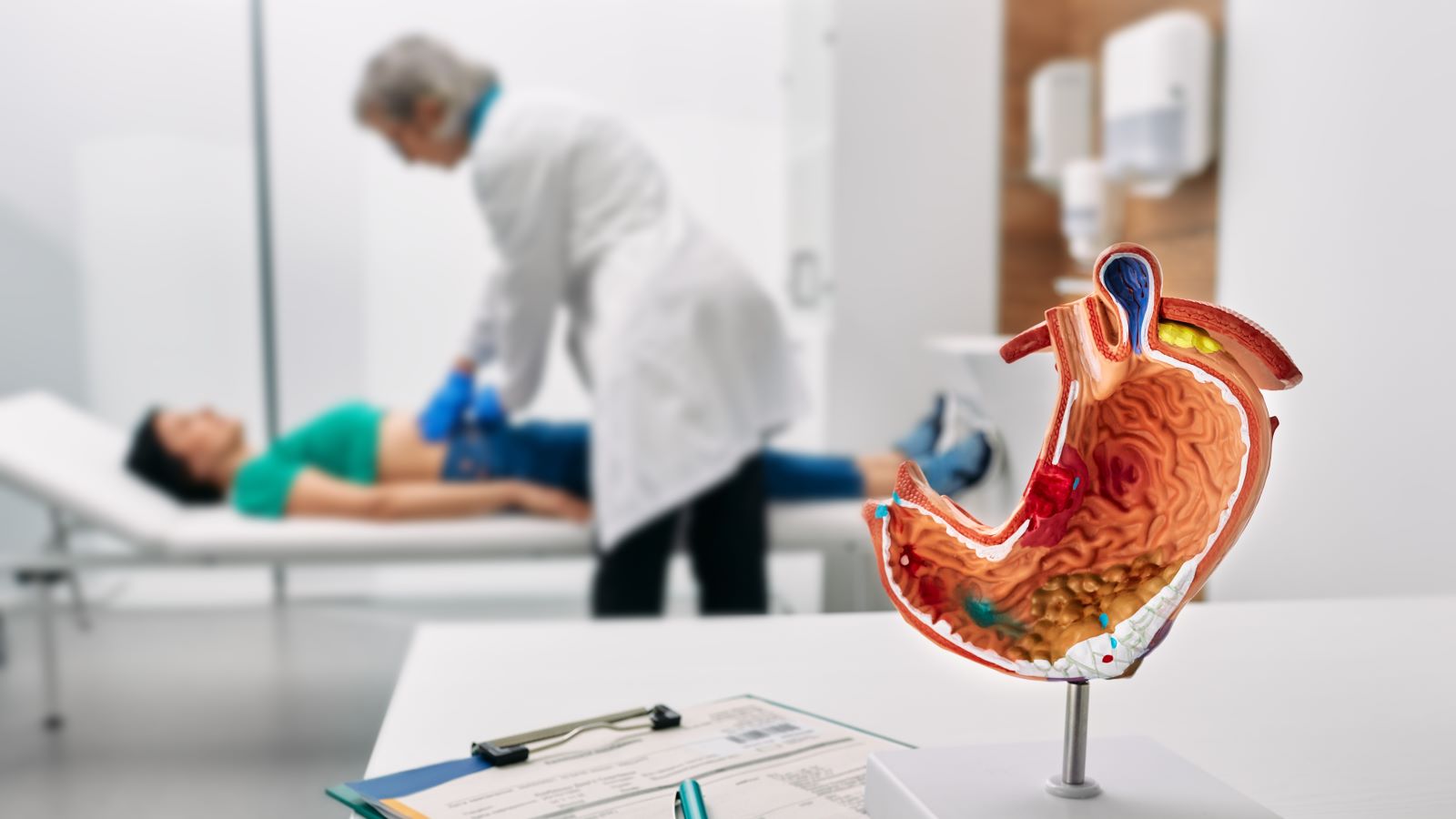<< Back
What to Know About the Peptic Ulcers That Caused Bruce Springsteen to Cancel His Tour

September 28, 2023
Rocker Bruce Springsteen, famous for singing of everyday life and everyman’s troubles, recently canceled the rest of his shows for the year to be treated for peptic ulcers.
But he’s not alone, says Neil Parikh, MD, gastroenterologist with the Hartford HealthCare Digestive Health Institute. The painful condition is very common, affecting up to 10% of the world’s population during their lifetime.
Here’s what you need to know about peptic ulcers, according to Dr. Parikh.
What are peptic ulcers and what causes them?
“I tell my patients that a peptic ulcer is like a cut or sore in the lining, usually of the stomach or the start of the small intestine, called the duodenum,” Dr. Parikh says.
There are two very different causes of peptic ulcers:
- Bacteria. Hyperactive bacteria sometimes finds its way into the stomach with food and it’s not flushed out by digestion. Although most people with bacteria in their digestive tracts won’t develop a peptic ulcer, you can avoid problems by washing fresh produce and avoiding cross-contamination with raw meat.
- Non-steroidal anti-inflammatory (NSAID) pain relievers. Long-term use of pain medications like aspirin or ibuprofen thins the lining of the gastrointestinal tract and can trigger an ulcer.
> Related: Bariatric Surgery Can Help With These 5 Conditions
How do I know if I have a peptic ulcer?
As much as 70% of people who have a peptic ulcer will never have a symptom, Dr. Parikh explains. An upper endoscopy test is the best way to diagnose the condition.
“The most common symptom of a peptic ulcer is upper abdominal pain,” he says, adding that experiences can differ. “The pain can be worse for some after eating, but it’s worse for others on an empty stomach.”
Other symptoms you may notice include:
- Bloating in the abdominal area
- A feeling of fullness
- Nausea
> Want more health news? Text StartHere to 85209 to sign up for text alerts
How are peptic ulcers treated?
The treatment approach specialists will suggest, he continues, depends on the cause of the peptic ulcer.
“If it’s due to bacteria, usually a two-week course of antibiotics will work. If it’s related to medication, we’ll suggest limiting the use of them and finding alternatives for the NSAIDs to prevent problems in the future,” Dr. Parikh says.
In addition, quitting or limiting habits like smoking and drinking alcohol can reduce your risk of developing a peptic ulcer or experiencing pain.